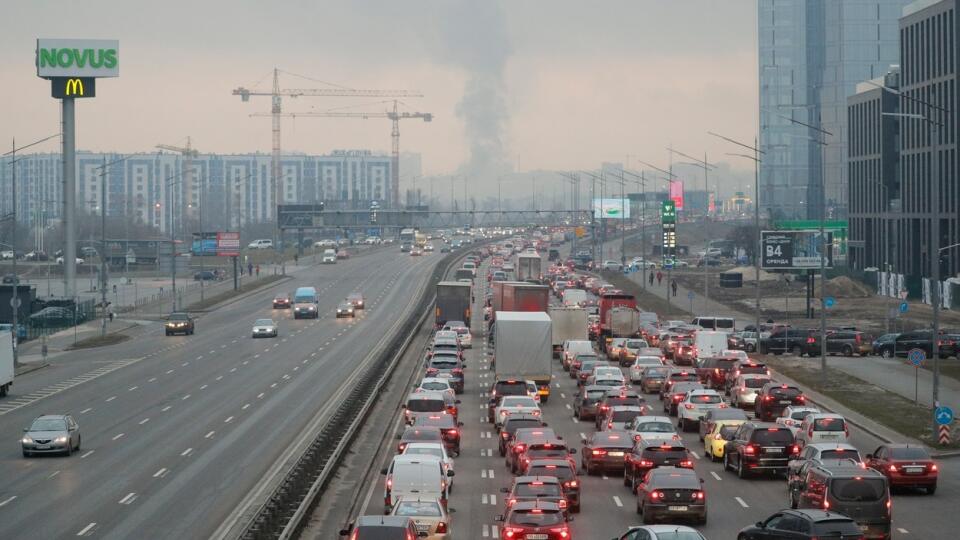More than 836,000 people have fled Ukraine as of this Wednesday. Half of them headed to Poland, and about 54,000 to Slovakia. The government cabinet has approved economic mobilisation measures to help those fleeing from the military conflict.
The help should include the provision of accommodation, drinking water, healthcare, and transport. Minister of Health Vladimír Lengvarský said that refugees from Ukraine with appropriate education could join the ranks of healthcare workers.
Slovakia is keen to help Ukraine. More than 30m euros have already been sent to help the country by the state, businesses, organisations, and citizens. Part of it was in the form of healthcare supplies, strengthening Ukraine’s IT infrastructure, accommodation offers, translation services, and food. Incalculable voluntary help and more than one million euros in donations have come from Slovak citizens themselves. They have been donating to organisations like People in Need, who have received 1,2m euros from them.
Russian embassy: Representatives from the Bratislava Old Town council came to protest in front of the Russian embassy together with Ukrainians living in Slovakia. They lit candles in support of Ukraine and in memory of Boris Nemtsov, a Russian liberal politician and Putin’s critic, who was assassinated in Moscow seven years ago. Old Town Mayor Zuzana Aufrichtová said the council wants to rename the street with the Russian embassy after him.
Ukraine in EU: President Zuzana Čaputová has expressed support of Ukrainian President Volodymyr Zelenskyy’s call for the European Union to make a decisive step towards Ukraine’s EU membership.
Inflation and invasion are a dangerous mix for Slovak business
Sanctions imposed on Russia, such as disconnecting Russian banks from SWIFT, fall of the Russian ruble, and exclusion from international financial markets will have an impact not only on Russian citizens but on Slovak markets too. The domestic financial and banking sector should remain stable. The sanctions will manifest primarily in the rising cost of energy and fuel and volatile financial markets. Inflation may be affected too, and it is possible it might reach 10%.
Slovakia may also see rising prices of agricultural products, as Russia and Ukraine are big exporters of wheat among other goods. However, these countries are not Slovakia’s dominant importers and so there shouldn’t be a lack of food on supermarket shelves. On the other hand, we’ll be experiencing a secondary impact of the conflict in terms of rising prices for goods and energy necessary for their production.
High markups, advance payments, and rising costs of electricity cause problems for big and small businesses alike. Aluminium producer Slovalco said they pay three times more for electricity than last year, making their bills go up by 200m euros. They had to decrease production to 60% of their capacity. Small businesses are in a crisis too, and they’re the most vulnerable after two years of the pandemic.
Other stories of the week
- National Security Bureau and the police are warning of a cyber threat to Slovakia. National Cyber Security Centre said they have been recording attempts at cyberattacks on online news portals, including Radio and Television of Slovakia (RTVS).
- Slovakia has long been a country with one of the lowest interest rates on mortgages in the eurozone. At the moment, they are still the third lowest, but that may be over, as the first Slovak banks started increasing them. Take a look at their evolution and comparison to the interest rates in the Czech Republic.
- Dr. Oetker food products will celebrate their 30th anniversary next year. Their road to success began when the company bought a part of the Slovamyl starch plant near Trnava. Since then, they have expanded all over Slovakia and the Czech Republic, and even further into Europe. Check out Dr Oetker’s business story here.
- The pandemic has forced businesses to think in terms of e-commerce. IKEA Bratislava is keeping up too. They are launching a new app enabling customers to scan and pay as they shop, and they are considering food delivery of their most popular items, including their famous meatballs.
Thank you for reading.
See you next week.






